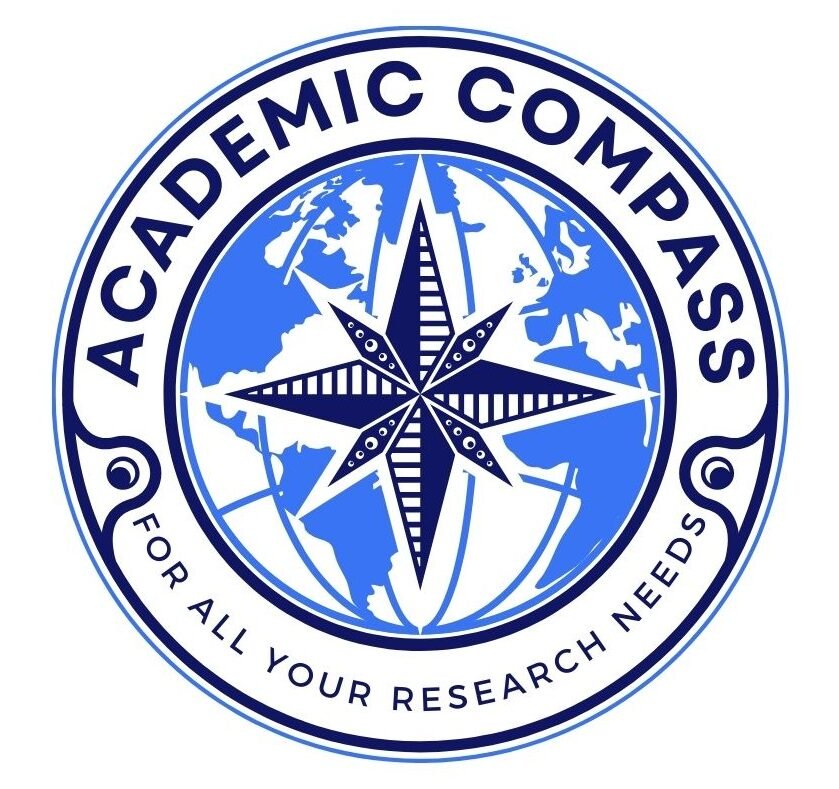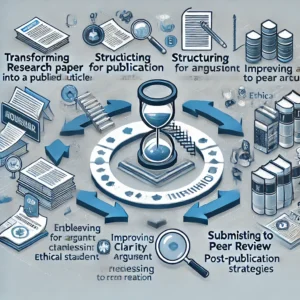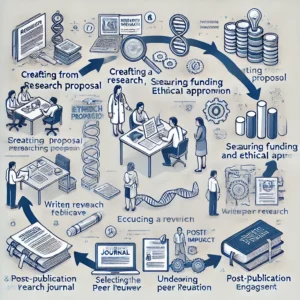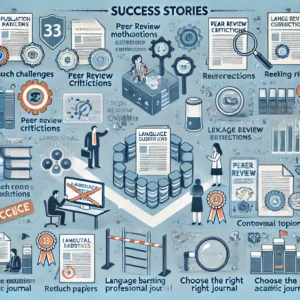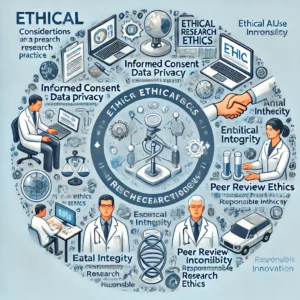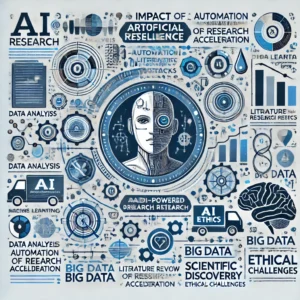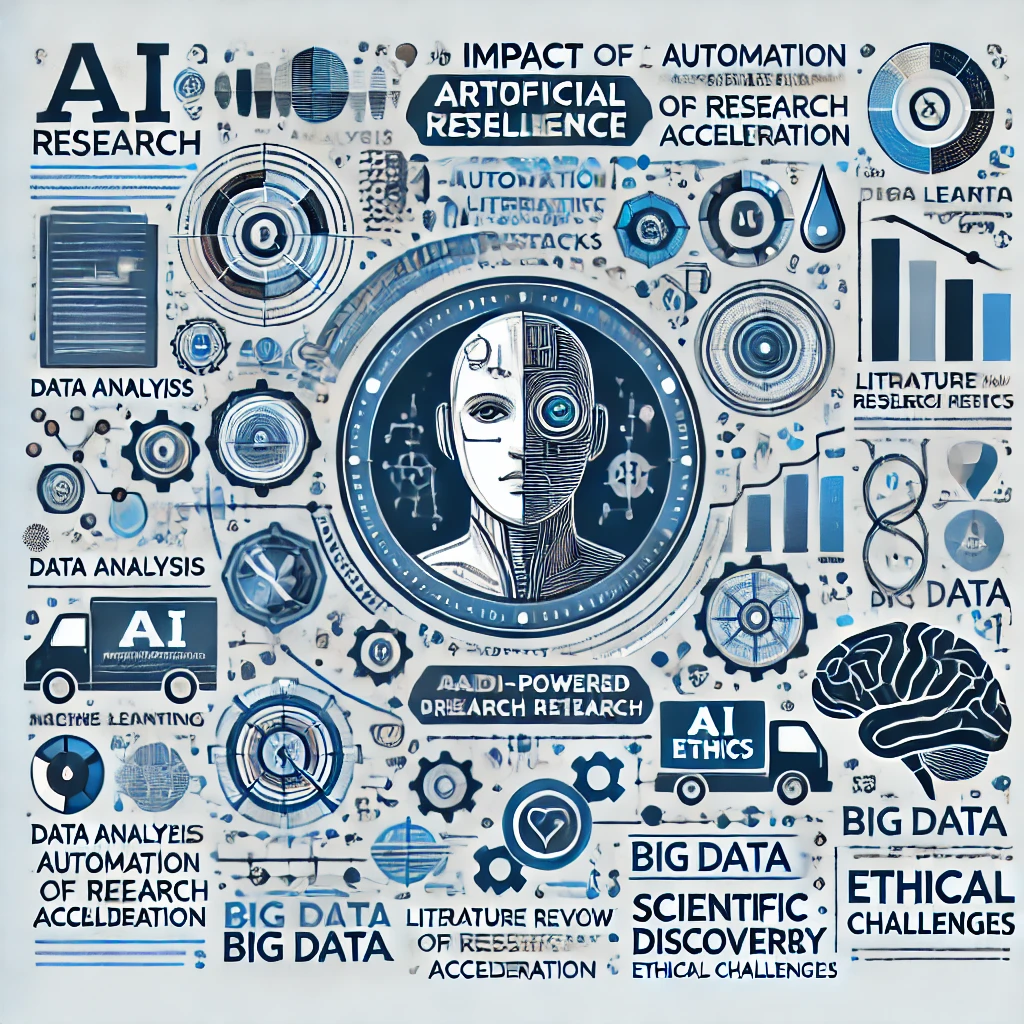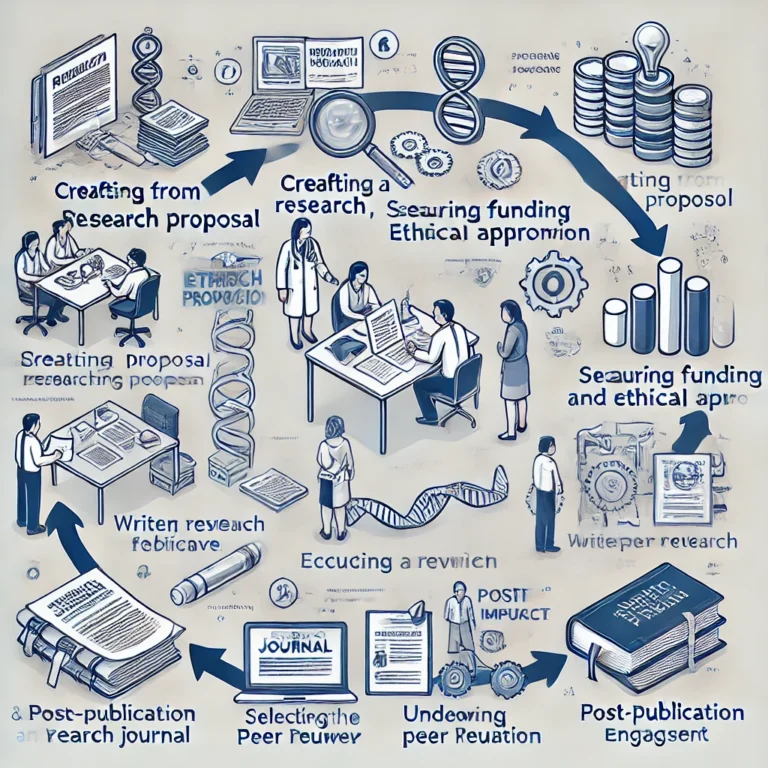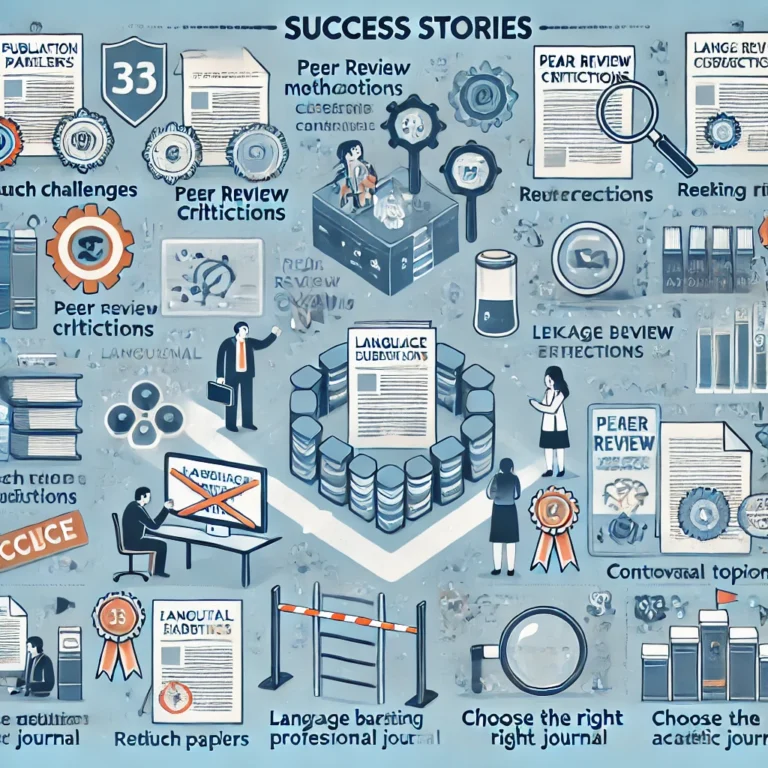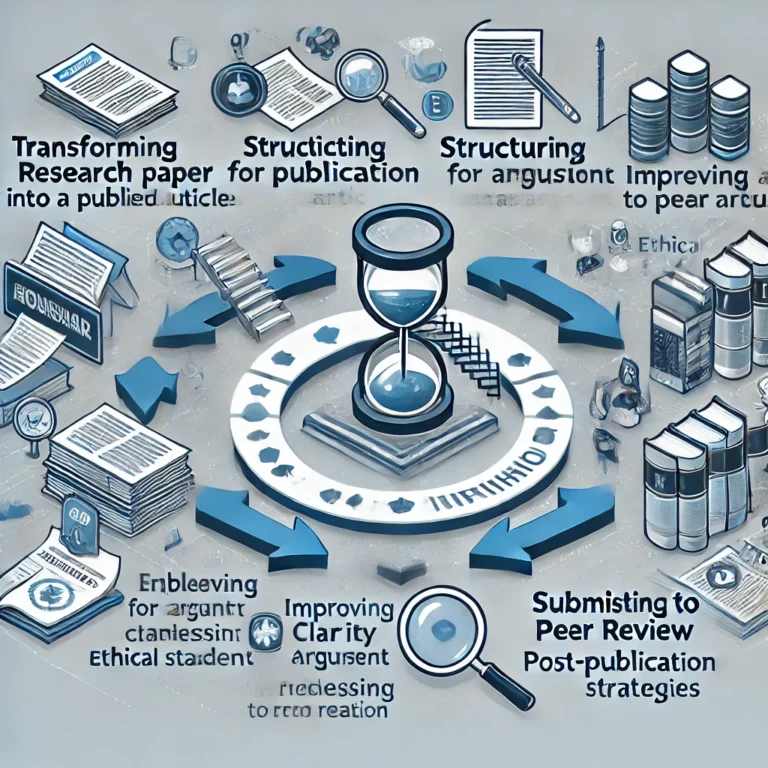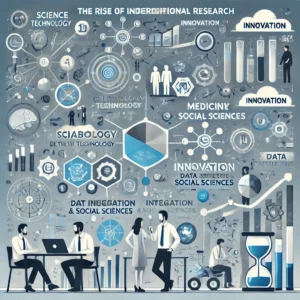Artificial Intelligence (AI) is transforming academic research by enhancing data analysis, automating tasks, and enabling new discoveries. From streamlining literature reviews to advancing predictive modeling, AI has become an essential tool across multiple disciplines. However, it also raises ethical concerns and challenges that researchers must navigate carefully.
1. Enhancing Data Collection and Analysis
AI-powered tools significantly improve how researchers collect, organize, and interpret data.
Key AI Applications:
✅ Big Data Processing – AI can analyze massive datasets quickly, identifying patterns that would take humans months to detect.
✅ Text Mining & Natural Language Processing (NLP) – AI-powered algorithms extract insights from large volumes of academic papers, helping with literature reviews.
✅ Predictive Analytics – Machine learning models can forecast trends, behaviors, and experimental outcomes.
🔹 Example: In climate research, AI models analyze satellite data to predict environmental changes.
2. Automating Research Tasks
AI helps streamline administrative and repetitive research tasks, allowing scholars to focus on analysis and interpretation.
AI-Powered Research Tools:
🔹 Reference Management – Tools like Zotero and Mendeley use AI to organize citations.
🔹 Plagiarism Detection – AI-powered tools such as Turnitin check for originality in academic writing.
🔹 Data Visualization – AI-enhanced platforms like Tableau create dynamic research visuals.
🔹 Example: AI-based lab automation tools speed up biological experiments by optimizing procedures.
3. Accelerating Literature Reviews
AI-driven search engines improve literature discovery and knowledge synthesis.
AI Tools for Literature Review:
🔹 Semantic Scholar – AI-powered academic search engine that highlights key insights from papers.
🔹 Elicit.org – Uses NLP to extract and summarize research findings.
🔹 Iris.ai – Helps researchers map research questions to relevant literature.
🔹 Example: AI-assisted systematic reviews reduce the time required for screening and selecting studies.
4. Advancing Scientific Discovery
AI has become instrumental in hypothesis generation, simulations, and experimental design.
Key Innovations:
✅ Drug Discovery – AI identifies potential pharmaceutical compounds by analyzing chemical structures.
✅ Genomic Research – AI helps decode DNA sequences for medical breakthroughs.
✅ Materials Science – Machine learning predicts new material properties before physical testing.
🔹 Example: AI models discovered new antibiotics by analyzing molecular structures.
5. Ethical and Reliability Challenges
While AI offers many advantages, its use in academic research raises concerns.
Challenges & Considerations:
⚠ Bias in AI Models – AI models can inherit biases present in training data, leading to skewed results.
⚠ Data Privacy – Handling sensitive research data requires strict security measures.
⚠ Reproducibility Issues – AI-generated results must be validated through peer-reviewed methods.
⚠ Job Displacement – Automating tasks may impact traditional academic roles.
🔹 Example: Bias in AI-driven hiring tools has sparked debates about ethical AI in research and industry.
6. Future of AI in Academic Research
As AI continues to evolve, its role in research will expand, integrating deeper into academia.
Future Trends:
🔹 AI-Generated Research Papers – AI tools like ChatGPT assist in drafting reports and summarizing findings.
🔹 AI-Powered Peer Review – AI systems will enhance academic journal review processes.
🔹 Cross-Disciplinary Research – AI will foster collaboration between computer science, healthcare, and humanities.
🔹 Example: AI-assisted peer review is already being explored by publishers to detect errors and ensure quality.
Conclusion
AI is revolutionizing academic research by making data analysis faster, automating workflows, and enhancing discovery. However, responsible AI use is crucial to maintain research integrity and ethical standards. As AI continues to develop, researchers must balance innovation with ethical considerations.
Would you like a comparison of AI research tools or a visual representation of AI’s role in academia? 😊
